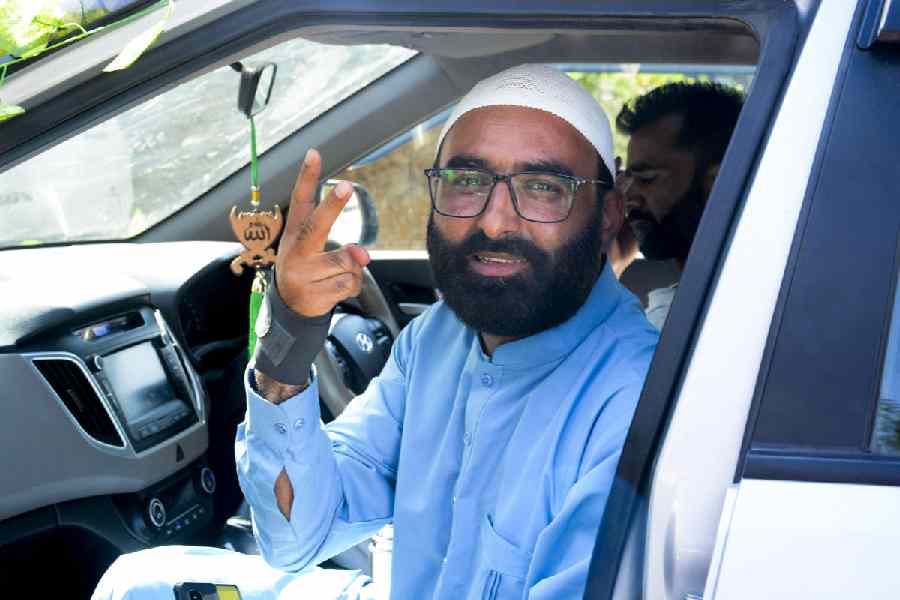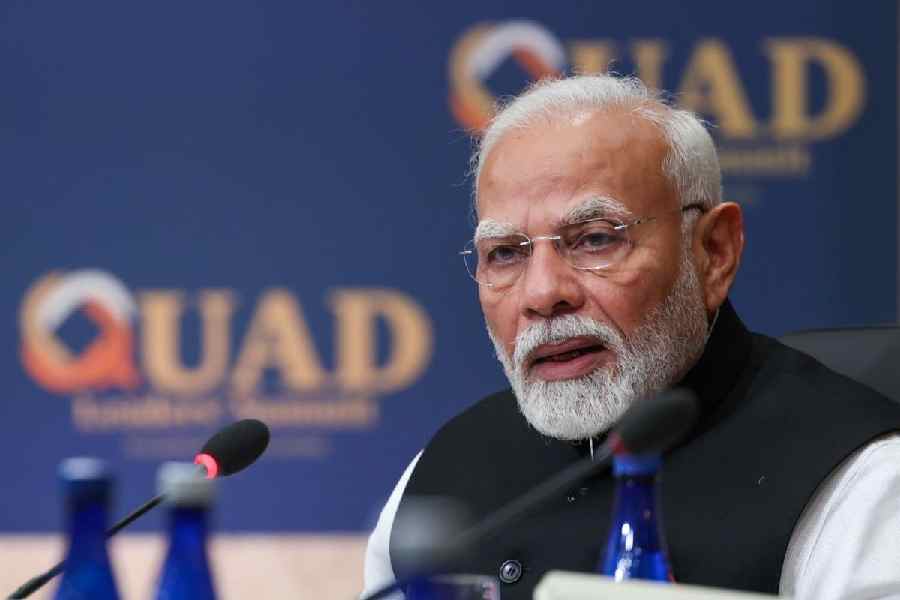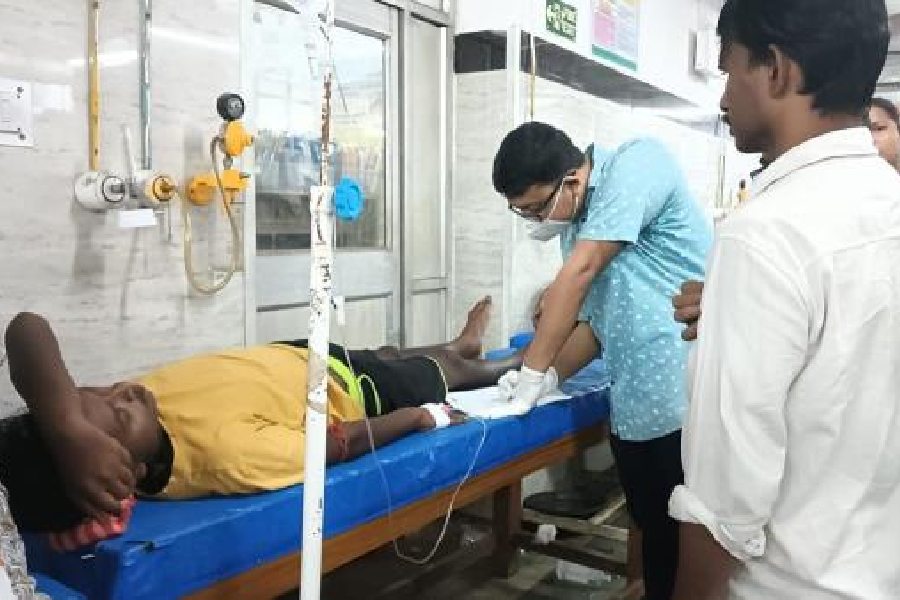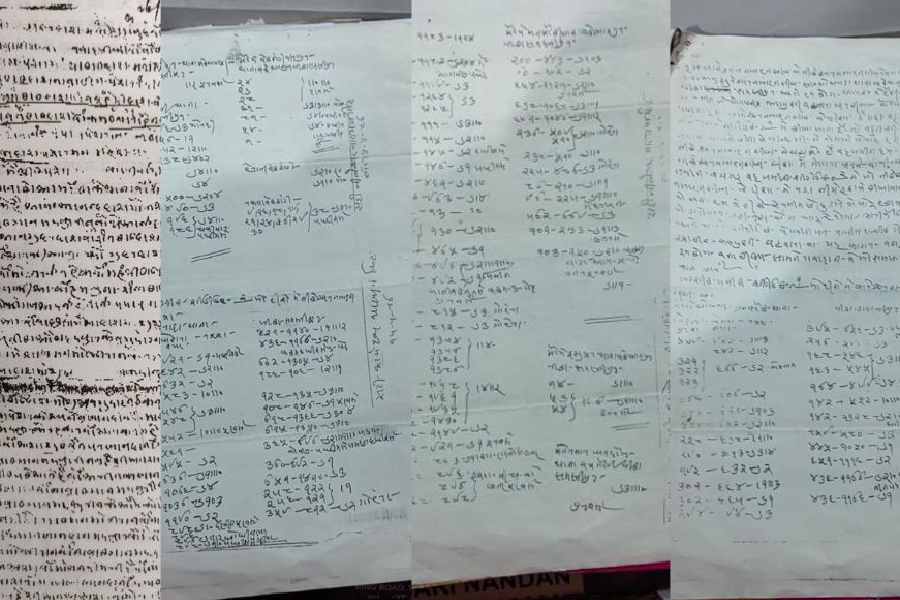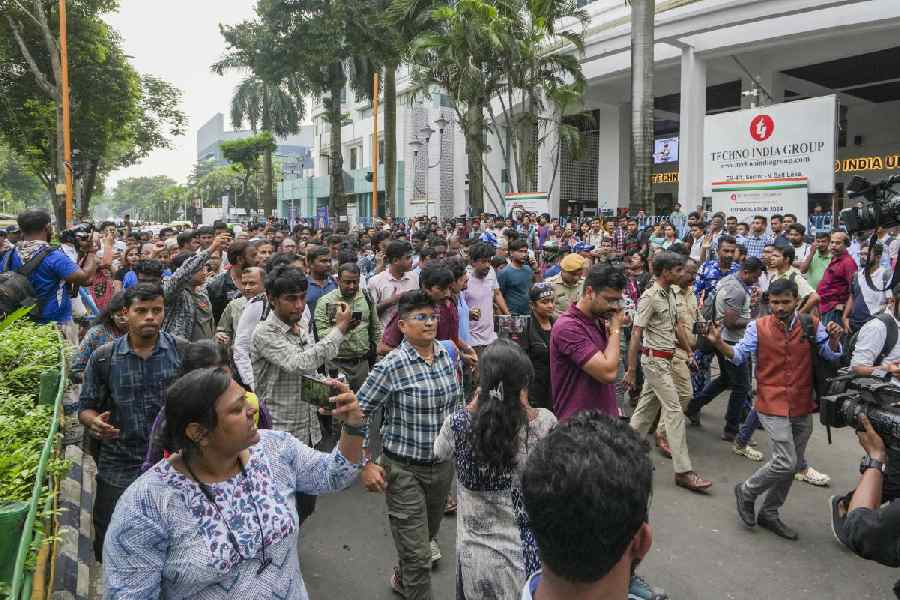An extraordinary autumn is unfolding in the Kashmir valley. The trees haven’t turned colour yet, but the ground has become a rainbow riot of banners at battle.
If you can imagine multiple rag-tag Gaulish formations converging inexorably upon each other in a piff! bang!! pffft!!! collision — not always clear about who they are out to slay or why — you are probably close to sensing the nature of the Kashmir election.
The crying pity is that it is a script arrived late for Messrs Rene Goscinny and Alberto Uderzo to craft it into another classic: Asterix in Kashmir. Think of a character from the cast they created and you’d almost instantly find a match amongst those stomping about this campaign. There’s one that finds resonance in several at once — Cacofonix, the raucous fiddler.
Never has the Kashmir battlefield been as crowded with contestants, neither ever so replete with active soldiery. Should you run into a frill — any shade of frill — out canvassing, be sure to be stranded for hours, such is the draw of electioneering.
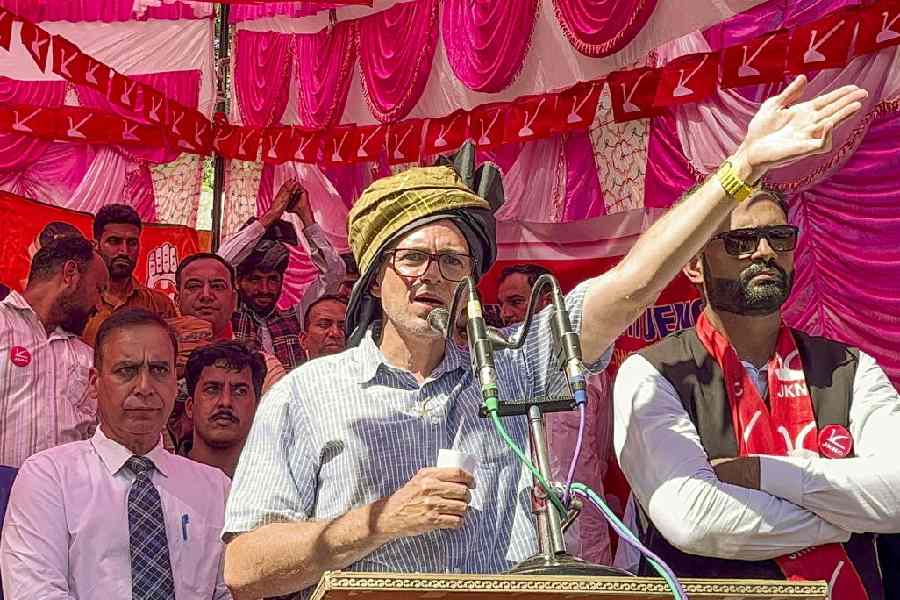
National Conference Vice President Omar Abdullah addresses a public meeting ahead of the second phase of Jammu and Kashmir Assembly elections, at Mendhar in Poonch district, J&K, Friday, Sept. 20, 2024. PTI
Formations never known to exist are in the fray, parties registered as far away from here as remote pockets of Uttar Pradesh are participating; never mind the nativist National Conference (NC), the Peoples Democratic Party (PDP), the Congress and the BJP, never mind lesser formations like the People's Conference and the Apni Party, never mind the rabble-rousing raiders of Baramulla MP Sheikh “Engineer” Rashid, even the Jamaat-e-Islami has walked on stage, its nominees masquerading in the gauzy guise of Independents.
Close to 60 per cent voters turned up at the booths in the first phase last Wednesday; be not surprised if that figure shoots higher in subsequent rounds. It is almost as if Kashmir is rushing about to over compensate for remaining cold and averse to elections these past decades.
And yet, the question refuses to be batted away: Whatever for, what’s triggered this unlikely hubbub on the hustings? Why such a cascade of suitors of the hollowed-out trophy that Kashmir has been rendered?
When Kashmiris last voted in a local election 10 years ago, they had voted for what no longer exists. There is no state of Jammu and Kashmir; it is, instead, one of two Union Territories. There is no flag and no separate Constitution, moth-eaten though it was. There are no provisions of Article 370 to clutch to their hearts. There is no Assembly as it used to be. The future Assembly — the one being currently elected — will be no more than a gathering of pretenders to power.
The real powers in Jammu and Kashmir are not seeking election. They are lead actors, elected and unelected, of the Narendra Modi government in Delhi, and its appointed potentate to the Union Territory, lieutenant governor Manoj Sinha.
The future chief minister of Jammu and Kashmir — irrespective of whether it remains a Union Territory or gets elevated to statehood — will have access to a little more than municipal powers. Overarching security issues, all central services, including the civilian and police bureaucracy, prisons, anti-corruption and vigilance affairs, all matters related to the appointment of law officers and parliamentary affairs, are among the powers now vested in the lieutenant governor.
During the parliamentary elections earlier this summer, Omar Abdullah of the National Conference had made two sharp points about the Assembly polls in an interview with The Telegraph. The contest for the Assembly would be a “bloodbath”, he had said. But he wasn’t interested in becoming chief minister of a Union Territory because he wouldn’t want to be in a position where he would have to petition the lieutenant governor even to appoint a peon.
Omar presaged the nature of the Assembly contest just right, it appears; with a never-before number of formations and individual candidates jockeying about, the Valley has indeed turned into an overcrowded bullring in which foes, and often friends, are landing indiscriminate blows on each other. The NC and the Congress are in alliance, but on half-a-dozen or so seats they have decided to resign themselves to the oxymoron called friendly fights, such is the run on the contest for a prize that comes with no real powers attached.
It is equally clear that Omar bungled the second bit — the prediction of his own role in the Assembly enactment. At the start of the campaign, he said he wasn’t interested in contesting, his father Dr Farooq Abdullah would. Very soon, he reversed his call; the elder Abdullah pulled back, Omar fielded himself from Ganderbal, which has returned the Abdullahs many times but also tripped themon occasion.
But that wasn’t to be it. Within days, Omar also filed papers from Budgam in north Kashmir, not because he was “unsure” of the Ganderbal outcome, he argued, but because New Delhi was trying to lay a trap by fielding jailed separatists (who may enjoy a hold on public sentiment)against him.
Omar had lost the Baramulla Lok Sabha seat by over two lakh votes to the (then jailed) outlier leader Engineer Rashid, and has since been wary of getting into a contest with those unafraid of sailing on separatist sails.
But should he win, and should the NC-Congress alliance get a majority, would Omar agree to become the chief minister who would have to grovel before the lieutenant governor? That question remains afloat and unanswered in Kashmir’s extraordinary autumnal air.

